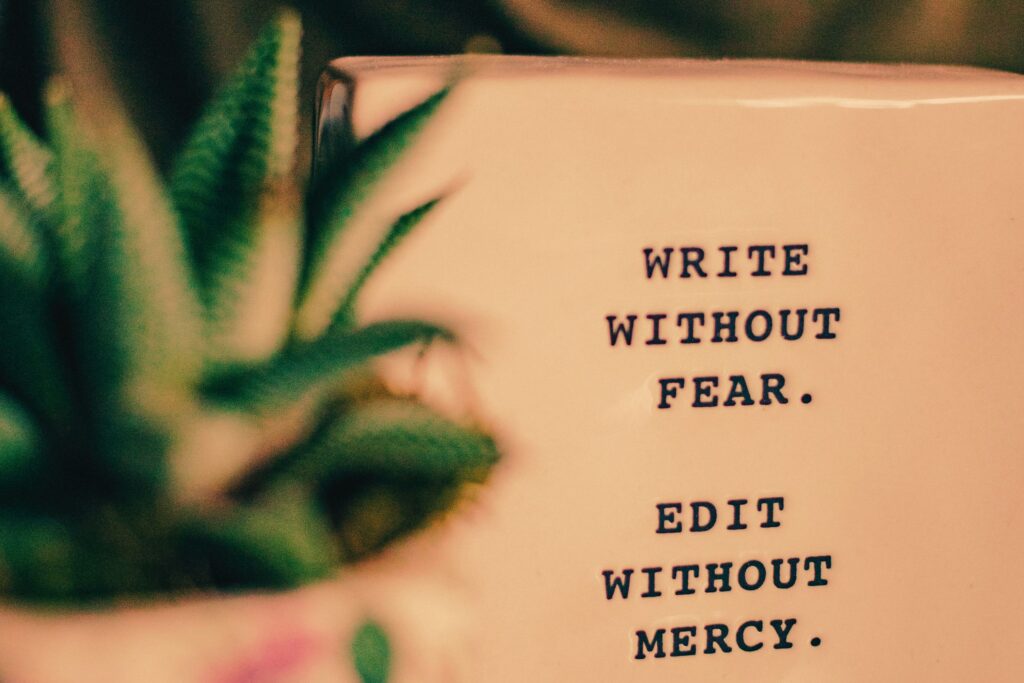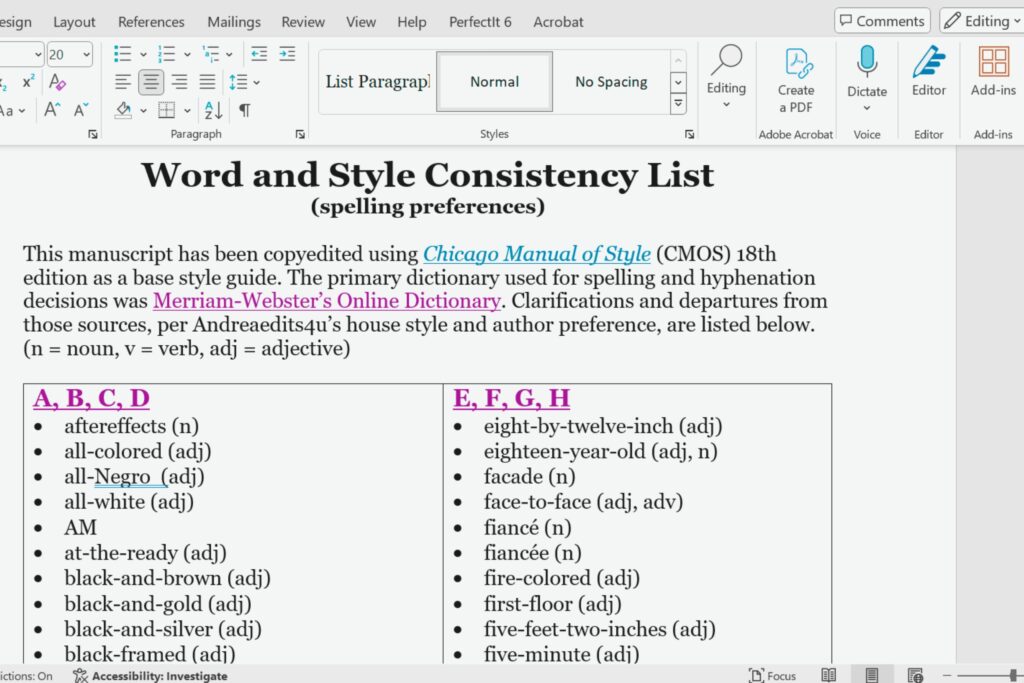
As a freelance copyeditor, I’ve had the opportunity to work on a variety of projects across different genres. Each manuscript presents unique challenges, but every so often, a project comes along that is particularly special—one that pushes my skills to new levels and reminds me why I love this work. Recently, I completed my largest copyediting project to date: a 126,000-word literary fiction manuscript. It was a labor of love, requiring meticulous attention to detail, a 21-page style sheet, and a deep engagement with the story’s layered narrative. Today, I’m sharing what made this project special, the challenges I faced, and the rewarding experience of working with the author.
The Scope of the Project
This literary fiction manuscript was unlike any I had worked on before. The novel was intricately woven with historical references, cultural nuances, and a deeply introspective narrative that required careful attention to detail. With a word count of nearly 126,000 words, this project was much longer than the average novel, which typically falls between 70,000 and 90,000 words.
One of the most critical aspects of my role as a copyeditor is maintaining consistency throughout the manuscript. Given the complexity of the plot, the shifts in perspective, and the multiple time periods covered in the story, I had to keep meticulous notes to ensure accuracy. This led to the creation of a 21-page style sheet, which detailed everything from character names and traits to recurring themes, spelling preferences, and historical references.

The Challenges of Editing a Lengthy Literary Fiction Manuscript
Every editing project comes with its own set of challenges, and this one was no exception. Here are some of the main hurdles I encountered:
1. Maintaining Consistency Across 126,000 Words
With a novel of this length, consistency is key. Small details—such as a character’s eye color, the spelling of a place name, or a particular phrase the author used—had to be uniform throughout. Given the intricacies of the plot and character arcs, ensuring continuity was a significant part of my job.
2. Handling Complex Sentence Structures
Literary fiction is often characterized by rich, elaborate prose, which can be beautiful but also difficult to navigate. My job was to enhance readability without compromising the author’s voice. This required a delicate balance of refining sentence structure, adjusting awkward phrasing, and ensuring clarity while preserving the lyrical quality of the writing.
3. Tracking Historical and Cultural References
This novel incorporated references to Black culture and history, which added depth and authenticity to the story. As an editor, I needed to fact-check certain historical references while ensuring that cultural elements were represented accurately. My goal was to honor the author’s vision while upholding editorial integrity.
The Rewarding Experience of Working on This Project
Despite the challenges, this project was one of the most rewarding experiences of my career. The novel’s themes of identity, morality, and resilience resonated deeply with me, and I found myself genuinely invested in the characters’ journeys.
One of the signs of a truly remarkable book is its ability to leave a lasting impression on the reader—even after the last page is turned. This manuscript was so compelling that I found myself taking notes on some of the referenced books to add to my own reading list. It’s rare to work on a book that not only engages you as an editor but also enriches you personally.
A great editing experience isn’t just about the manuscript—it’s also about the collaboration between editor and author. The author’s passion for their work was evident in every sentence, and their openness to feedback made the process a true partnership. Here’s what they had to say about working with me:
“Andrea is not only a true professional, she is a gem. She knows what she is doing and exudes confidence. Your work will be improved by her talent and ability. I loved working with her. Andrea’s enthusiasm and interest in my book was uplifting. It is my sincerest hope to work with her in the future.”
Receiving this kind of feedback reinforces why I do what I do. Editing isn’t just about fixing grammar and typos—it’s about helping authors bring their vision to life and ensuring their stories resonate with readers.
What This Experience Taught Me
Every editing project offers valuable lessons, and this one was no exception. Here are some keys that helped me perform the edit to the best of my ability:
✔ The Importance of a Detailed Style Sheet: A comprehensive style sheet was essential for maintaining consistency in a novel of this length. It served as my reference guide throughout the process and ensured that all editorial decisions remained consistent.
✔ Preserving the Author’s Voice Is Just as Important as Fixing Errors: With literary fiction, it’s not just about grammatical accuracy—it’s about the rhythm, flow, and emotion behind the words. My goal was to enhance the text without losing the author’s unique style.
✔ Engagement and Enthusiasm Matter: Loving the work you edit makes all the difference. When you genuinely enjoy the story, it translates into more thoughtful, careful editing.
Looking Ahead: More Projects Like This
This project reinforced my love for editing literary fiction and working on stories that carry weight, depth, and cultural significance. As I continue to grow in my career, I look forward to more collaborations with authors who pour their hearts into their work.
If you’re a writer working on your own manuscript and looking for an editor who is passionate about storytelling, I’d love to help! Contact me to learn more about my editing services or to chat about your book.
Final Thoughts
Editing this novel was more than just a job—it was an immersive literary experience. It challenged me, inspired me, and reminded me why I love what I do. I can’t wait to see this book out in the world and in the hands of readers who will undoubtedly appreciate its brilliance.
📢 Writers & authors: Have you ever worked on a project that completely pulled you in? What’s been the most rewarding part of your writing journey? Let’s chat in the comments!
